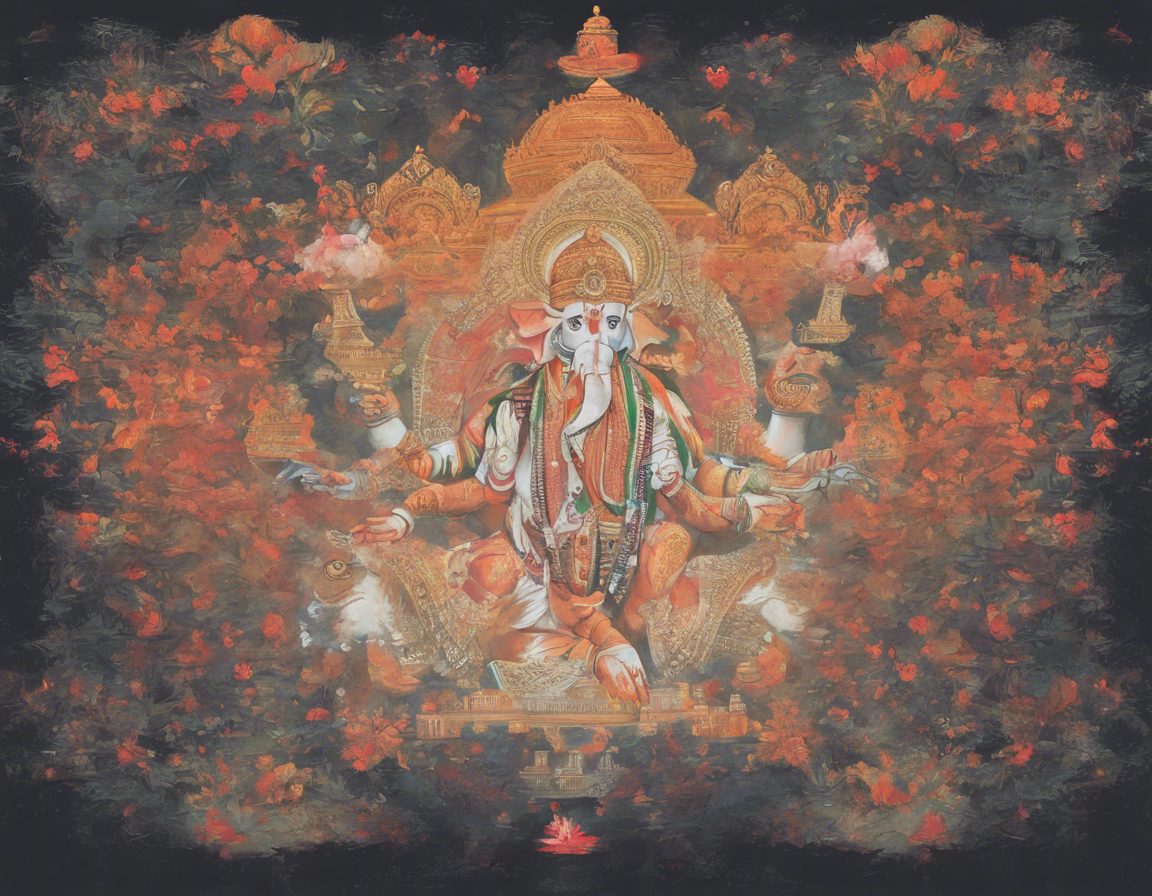Purusha, a term derived from Sanskrit, holds a significant place in Hindu philosophy and mythology. Within the vast and intricate tapestry of Hindu beliefs, Purusha is ubiquitously present, representing various aspects of existence, from the cosmic to the individual level. One of the primal concepts within this framework is that of Adipurusha, the primordial Purusha from which all creation emanates. In this article, we delve into the origins of Purusha and explore the profound significance of Adipurusha.
Understanding Purusha
In Hindu cosmology, Purusha is often contrasted with Prakriti, the female principle representing nature and matter. Purusha, on the other hand, symbolizes the spirit, consciousness, and the eternal essence that transcends physical existence. The interconnectedness of Purusha and Prakriti is fundamental to the creation and functioning of the universe, forming the basis of various philosophical and theological discussions in Hindu scriptures.
The Concept of Adipurusha
Adipurusha is the primordial or original form of Purusha as described in the Vedic texts. Adipurusha is often depicted as the cosmic man or being from whose sacrifice creation emerges. The hymn from the Rigveda known as the Purusha Sukta provides a vivid description of this cosmogonic event, where different parts of the universe are said to manifest from the various body parts of Adipurusha.
Symbolism and Metaphor
The narrative of Adipurusha serves as a powerful metaphor for the cyclical nature of creation, preservation, and dissolution in Hindu cosmology. The sacrifice of Adipurusha symbolizes the self-offering of the divine for the manifestation of the cosmos, highlighting the interplay between the transcendent and immanent aspects of reality.
Adipurusha in Mythology and Literature
The concept of Adipurusha finds resonance in various mythological texts and epics within Hinduism. In the Puranas, Adipurusha is often identified with deities such as Vishnu or Shiva, emphasizing the idea of the supreme being from whom all other forms manifest. The Ramayana and Mahabharata, two of the most renowned epics in Hindu mythology, also contain references to Adipurusha in the form of Rama and Krishna, who are considered avatars or incarnations of the divine.
Adipurusha and Spiritual Evolution
From a spiritual perspective, Adipurusha represents the ultimate goal of realization and liberation in Hindu philosophy. By recognizing the divine essence within oneself and transcending the limitations of the ego, one can attain union with Adipurusha and experience spiritual liberation. The practice of yoga, meditation, and self-inquiry are often viewed as means to realize this inherent connection with the primordial Purusha.
Adipurusha in Modern Context
The relevance of Adipurusha extends beyond ancient texts and traditions, resonating with contemporary spiritual seekers and philosophers seeking to understand the nature of existence and consciousness. The archetype of Adipurusha continues to inspire individuals on their quest for self-discovery and transcendence, offering a timeless symbol of the divine presence within and beyond the manifest world.
Frequently Asked Questions (FAQs)
- What is the difference between Purusha and Adipurusha?
-
Purusha is the general concept of the cosmic spirit, while Adipurusha specifically refers to the primordial or original form of Purusha from which creation arises.
-
How does the concept of Adipurusha relate to other Hindu deities?
-
Adipurusha is often equated with major deities like Vishnu and Shiva, emphasizing their role as manifestations of the supreme cosmic being.
-
What is the significance of the Purusha Sukta in relation to Adipurusha?
-
The Purusha Sukta hymn in the Rigveda narrates the sacrifice of Adipurusha and the emergence of the universe from this primal act, highlighting the cosmic dimensions of creation.
-
How can one connect with the essence of Adipurusha in daily life?
-
Practices such as meditation, self-inquiry, and contemplation on the divine nature of the self can help individuals cultivate awareness of their intrinsic connection with Adipurusha.
-
Is Adipurusha a symbolic representation or a literal entity in Hindu theology?
- Adipurusha is understood both as a symbolic representation of the cosmic principle and as a metaphysical reality that transcends conventional concepts of being.
In conclusion, the concept of Adipurusha illuminates profound insights into the nature of existence, consciousness, and the divine source from which all life emanates. By exploring this primordial archetype, one can deepen their understanding of the interconnectedness of all creation and embark on a transformative journey towards spiritual realization and unity with the ultimate Purusha.
